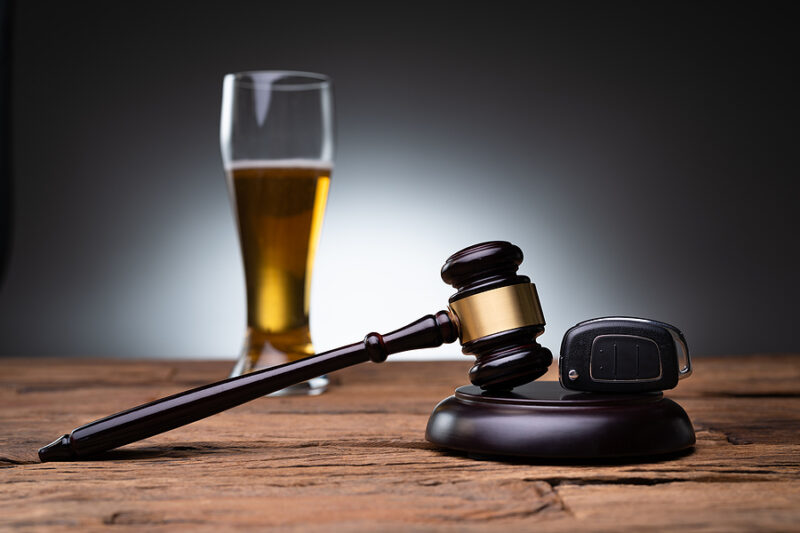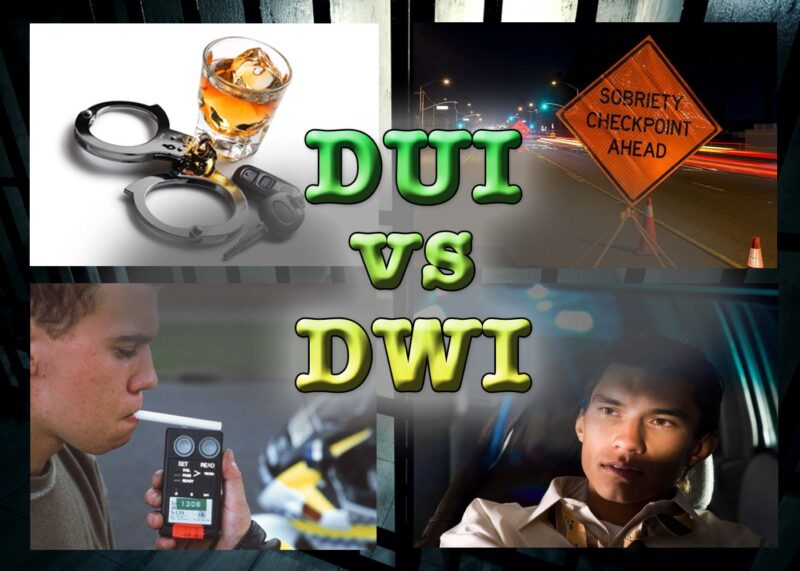Understanding traffic laws can often feel like deciphering a dense legal tome, especially when it comes to understanding the distinctions between Driving While Intoxicated and Driving Under the Influence. These terms, although frequently used interchangeably in casual conversation, carry significant legal distinctions that can have profound implications for those caught driving impaired. This guide focuses on providing a clear, concise overview of the legal boundaries and consequences associated with each term, offering valuable insights for drivers.
What do you need to know about driving while intoxicated?

Driving While Intoxicated typically refers to the offense of operating a vehicle with a Blood Alcohol Concentration level that meets or exceeds a set legal limit, which as of 2024, is commonly 0.08% for most drivers across various jurisdictions. This threshold signifies the point at which a driver is considered legally impaired, incapable of operating a vehicle safely. The determination of DWI is largely based on quantitative evidence obtained through breathalyzer tests, blood tests, or urine tests, which provide a direct measure of alcohol presence in the bloodstream.
The legal implications of a DWI charge can be severe, reflecting the significant risk posed by impaired driving. Penalties often include hefty fines, license suspension or revocation, mandatory alcohol education programs, and even incarceration. The severity of these consequences typically escalates with repeat offenses or if the impaired driving resulted in an accident causing property damage, injury, or death.
Some jurisdictions may differentiate within the DWI category based on the level of impairment. For instance, higher BAC levels might result in more serious charges or penalties, reflecting the increased risk associated with higher degrees of intoxication. Additionally, drivers operating commercial vehicles, as well as underage drivers, often face stricter BAC standards, acknowledging the higher stakes and legal responsibilities in these contexts.
What do you need to know about driving under the influence?

Driving Under the Influence is a broader legal term that encompasses driving or operating a vehicle while impaired by alcohol or drugs, including prescription medications, over-the-counter medications, illegal drugs, and even substances that are not necessarily illegal, such as certain herbal supplements. Unlike DWI, which is determined primarily through BAC levels, DUI charges can be based on observed impairment, behavioral evidence, or physical signs of intoxication, regardless of the specific BAC level.
The criteria for a DUI charge can vary significantly between different jurisdictions but generally focus on the driver’s ability to operate a vehicle safely. Law enforcement officers may use field sobriety tests, observed driving behavior, and physical symptoms of impairment to establish grounds for a DUI charge. This means that a driver could potentially face DUI charges even if their BAC is below the legal limit, should their ability to drive be deemed impaired by the substances they have consumed. Note that if you are ever facing charges for DUI or DWI, you have to reach out to legal professionals such as GetShek. As you will see further down in the article, having the right legal support can make a huge difference to your charges.
Penalties for DUI convictions are designed to reflect the seriousness of driving under the influence of impairing substances. These penalties can include fines, license suspension, mandatory rehabilitation programs, and imprisonment. The specific consequences depend on the jurisdiction’s laws, the driver’s history of impaired driving offenses, and the presence of aggravating factors such as causing an accident.
What are the legal consequences you might face?

The distinctions between DWI and DUI not only have significant legal implications for individuals charged with these offenses but also reflect broader societal efforts to combat impaired driving and enhance public safety. Legal consequences for both DWI and DUI convictions are structured to serve as deterrents against impaired driving, reinforcing the message that such behavior is unacceptable and will be met with serious repercussions.
For individuals charged with either DWI or DUI, the penalties can vary widely based on the jurisdiction, the circumstances of the offense, and the presence of any prior convictions for similar offenses. Common penalties include, but are not limited to, fines, incarceration, probation, mandatory alcohol or drug education programs, community service, and the installation of ignition interlock devices on the offender’s vehicle. In many cases, individuals may also face long-term consequences such as increased insurance rates, employment difficulties, and social stigma.
Beyond the immediate legal consequences for individuals, DWI and DUI laws serve a critical role in broader public safety efforts. Impaired driving is a leading cause of traffic-related fatalities and injuries, posing a significant risk not only to the impaired driver but also to passengers, other road users, and pedestrians. By enforcing strict laws against DWI and DUI, jurisdictions aim to reduce the incidence of impaired driving, thereby lowering the risk of accidents and enhancing the overall safety of public roadways.
What to do in case you face DWI or DUI charges?

For individuals facing DWI or DUI charges, navigating the legal system can be a daunting process. Understanding the distinctions between these charges and the potential implications is crucial for mounting an effective legal defense. Legal representation becomes an invaluable asset in these situations, providing guidance, advocacy, and expertise to navigate the complexities of the legal proceedings.
Legal professionals specializing in DWI/DUI cases can offer insights into the nuances of local laws, potential defenses, and strategies for mitigating penalties. They can also assist in understanding the rights of the accused, the possible outcomes of the case, and the best course of action based on the individual circumstances. For example, in some cases, it may be possible to challenge the accuracy of BAC testing methods or the validity of the traffic stop that led to the charges.
The ramifications of DWI and DUI extend beyond the immediate legal penalties, affecting individuals’ lives, their families, and the community at large. They underscore the importance of responsible behavior and informed decision-making to prevent the devastating consequences of impaired driving. Legal support and advocacy play crucial roles in navigating the aftermath of these charges, offering guidance, resources, and a path toward rehabilitation and responsible driving practices.
Understanding the legal landscape of DWI and DUI is more than a matter of legal compliance; it’s a commitment to safeguarding lives and ensuring the well-being of communities. By staying informed and advocating for responsible driving, we contribute to a safer, more responsible society where the joy of driving is not connected to the consequences of an accident.

